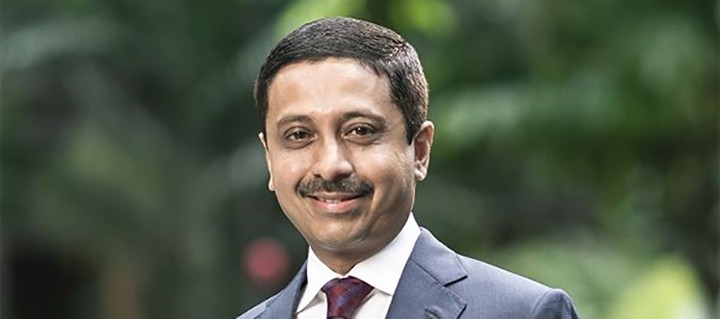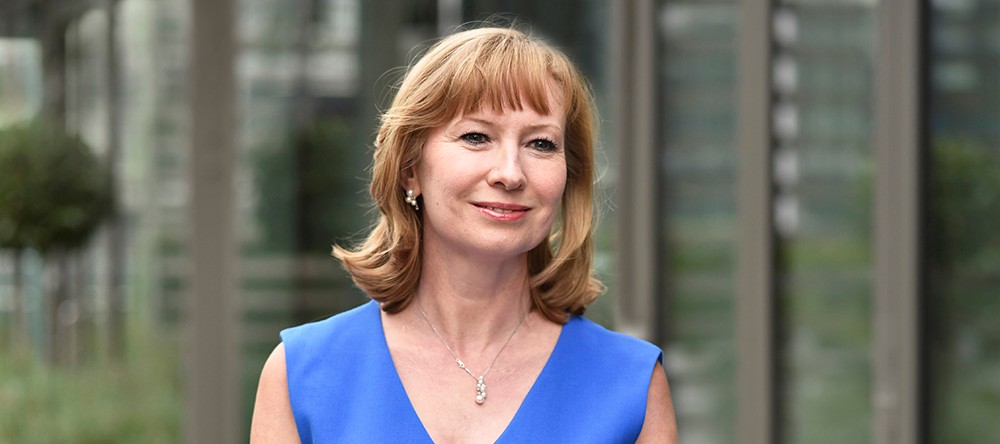Q&A with Prof. Andrew Karolyi, Cornell University

Prof. Andrew Karolyi is Deputy Dean and College Dean for Academic Affairs and Professor of Finance and Harold Bierman Jr. Distinguished Professor of Management at Cornell S.C. Johnson College of Business, and Professor of Economics, Department of Economics at Cornell University. Prof. Karolyi is also former Executive Editor of the Review of Financial Studies.
You are editing a Special Volume in the Review of Financial Studies on ‘Climate Finance’ for early 2020, why did you decide to do this now?
I was honoured to be asked to serve as Executive Editor of the Review of Financial Studies in 2014. At the time, I went on an informal listening tour of current PhD students, former PhD students, faculty members at my own and many other universities, as well as friends and acquaintances working in the financial services industry. From the last group, I heard emphatically that the research that top journals in Finance were featuring needed to find anew their relevance to the industry. For some, the global financial crisis and its aftermath was a wake-up call that we scholars in Finance needed to bring fresh new perspectives from our friends in industry and from colleagues in other scholarly disciplines to help us understand the fragility of our financial system and how it matters for the real economy and for society, at large.
During my first year on the job, I received an invitation from HRH The Prince of Wales and His two charities focused on sustainability (A4S and the Cambridge Institute for Sustainability Leadership) to attend a brainstorming event as to why one major societal challenge – climate change and global warming – did not seem to be on the radar for scholars in Finance. Indeed, they made clear that there were few to no papers published in top Finance or Accounting journals on the topic. The event and the conversation with HRH The Prince of Wales emphasized to me that Chief Investment Officers (CIOs), Chief Financial Officers (CFOs), and other corporate officers were looking for thought leadership from me and my colleagues to guide them in their decision making. Indeed, what I learned was that their shareowners, sponsors, plan beneficiaries, and other stakeholders were putting the pressure on them to act and the research need was now.
My relatively new role at the Review gave me the platform to respond to the challenge and I relished the opportunity. It took some work in design and execution. The idea I hatched was to launch a first-of-a-kind competition for research proposals to constitute what I thought could become the first body of knowledge on climate finance as a special issue of the Review. I knew I needed help and support. The Society for Financial Studies was keen to support the initiative, superb collaborators like Columbia University Professors Harrison Hong and José Scheinkman agreed to join me, other leading Finance scholars were only too pleased to sign up as Scientific Review Councillors, and key supporters in Norges Bank Investment Management, Accounting for Sustainability, and the Cambridge Institute for Sustainability Leadership were there to back me with ideas and the confidence that the project was worthy.
The result is a rich volume of nine papers from collaborator teams from around the world. The topics range from the consequences of extreme temperature fluctuations on sales and profits to that of sea-level rise for residential property valuations along the coasts; from an understanding of asset pricing fundamentals that allow for a long-run secular risk in global warming to the building of a hedge portfolio for climate-change-related news; and from the uncovering of unexpected shifts of equity mutual fund holdings in response to extreme weather events like tropical storms or wildfires and of fresh survey-based perspectives of global asset owners and managers on carbon asset valuations, climate-change-linked shareholder proposals for disclosure and divestment. Needless to say, I am very proud of this volume and these research papers.
How do you hope this special volume will influence the wider financial community?
The special volume launches in early 2020. I have great hope that the research papers along with my editorial with Professors Hong and Scheinkman will capture the attention of my fellow scholars in Finance. I hope it will inspire more research on the topic. There are, after all, so many open questions that we need answered. I have great hope that the findings will find their way into the minds of the many CIOs, CEOs, CFOs who were so eager to have financial science rise to the occasion. I have no doubt that these corporate officers will find that they need so much more that what we will have offered up. However, this presents an opportunity for firms, asset owners, endowments, banks, exchanges, and other organizations to rally the scholarly community by sponsoring more competition with their financial support as well as with proprietary data on, say, financial disclosures related to climate change that can lead to more creative research. It is exactly this kind of feedback loop that can sustain and build out the new sub-discipline of climate finance.
What are the opportunities for business schools more widely in integrating sustainability and climate finance into the syllabus?
Truthfully, many business schools have already been incorporating sustainability-related curricula for years. Some of these courses and programs of study incorporate finance in a modest way, often in the form of impact investing practicums. Climate finance, in my mind, is different. It is about the need to mobilize trillions of dollars in public and private capital for infrastructure investments for adaptation and mitigation of climate change. Finance scholars need to see the opportunity in building programs of study structured on the fundamental questions featured in the climate finance volume in the Review, in writing innovative, new case studies of companies and investment management firms dealing with hard questions related to climate change and global warming, and in featuring as guest speakers the corporate officers dealing with these issues. I am confident there will be many more such courses launched in the next five years.
At last year’s A4S Summit HRH The Prince of Wales said, “All is not yet lost, but this really is the final call.” What gives you hope that the finance community can help to create a sustainable world and answer this final call?
When I launched this Climate Finance initiative in 2017 at the Review of Financial Studies, I had many doubts as to whether or not financial scholars would respond to the call for proposals. It was a new topic on which there were virtually no working papers, which hinted that there may be no appetite for such research. When I saw that 106 different teams of collaborators responded to the call - a number well beyond my wildest expectations - I knew the effort would be successful. What was most gratifying and what gives me the most confidence about the future of this initiative is that the teams of scholars that responded were disproportionately younger – nearly 65% of the 250+ scholars across the 106 proposals were either younger assistant professors or PhD students.



